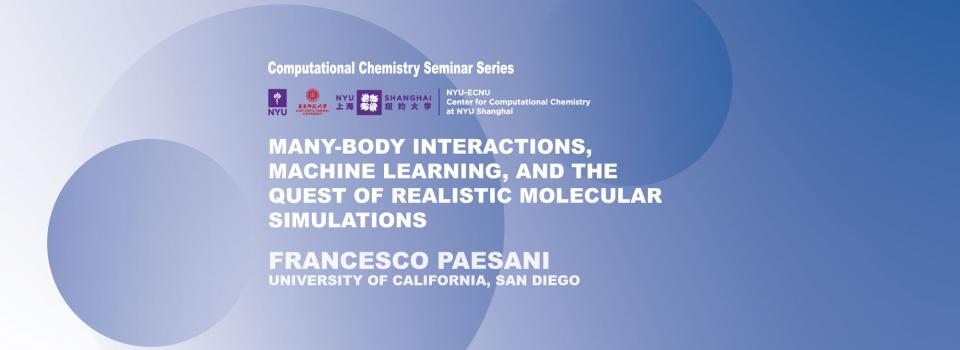
Zoom ID: 919 4269 5299
Passcode: 499503
- Join Via Zoom -
Abstract
Two of the most challenging problems at the intersection of electronic structure theory and molecular dynamics simulations are the accurate representation of intermolecular interactions and the development of efficient algorithms applicable to large systems. To some extent, these two problems are antithetical, since accurate calculations of molecular interactions typically require correlated electronic structure methods that are computationally too expensive for applications to large systems. I will describe our data-driven many-body energy (MB-nrg) formalism that overcomes these limitations and enables computer simulations from the gas to the condensed phase, with chemical and spectroscopic accuracy. MB-nrg is a unified theoretical/computational framework that integrates data-driven many-body representations for the low-order terms of the many-body expansion of the energy with mean-field-like representations of classical many-body interactions. I will illustrate the accuracy, transferability, and predictive power of our MB-nrg potentials for various molecular systems and, when possible, make connections with models based on density functional theory and neural network potentials.
Biography
Francesco Paesani received his Ph.D. in Theoretical Physical Chemistry from the University of Rome “‘La Sapienza”’ in 2000. He was a postdoctoral fellow at the University of California, Berkeley, working with Professor Birgitta Whaley, and at the University of Utah, working with Professor Gregory Voth. In 2009, he joined the faculty of the University of California, San Diego, where he was promoted to Associate Professor in 2015 and Professor in 2017. He is currently the Kurt Shuler Faculty Scholar in the Department of Chemistry and Biochemistry, and is affiliated with the Materials Science and Engineering graduate program and the San Diego Supercomputer Center. He is a founding member of the Halicioğlu Data Science Institute. His research focuses on the development, implementation, and application of many-body theories at the intersection of chemistry, physics, and computer science for molecular simulations of complex systems from the gas to the condensed phase. He was awarded the ACS OpenEye Outstanding Junior Faculty Award in Computational Chemistry in 2014, the NSF CAREER Award in 2015, the ACS Early Career Award in Theoretical Chemistry in 2016, the Legacy Lecture Award from UC San Diego student body in 2017, and the Cozzarelli Prize (National Academy of Sciences U.S.A.). He served as the Chair of the ACS Theoretical Chemistry Subdivision (2019) and is currently the Vice Chair-Elect of the ACS Division of Physical Chemistry.
Seminar Series by the NYU-ECNU Center for Computational Chemistry at NYU Shanghai


